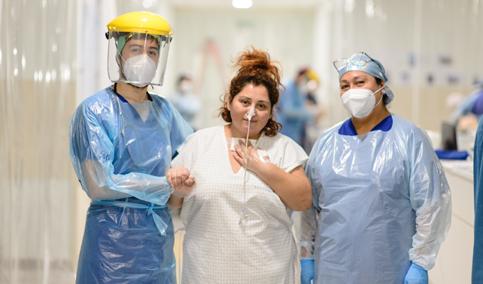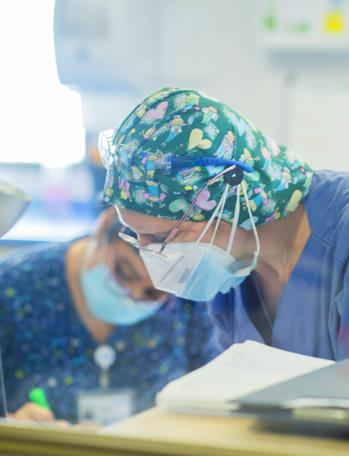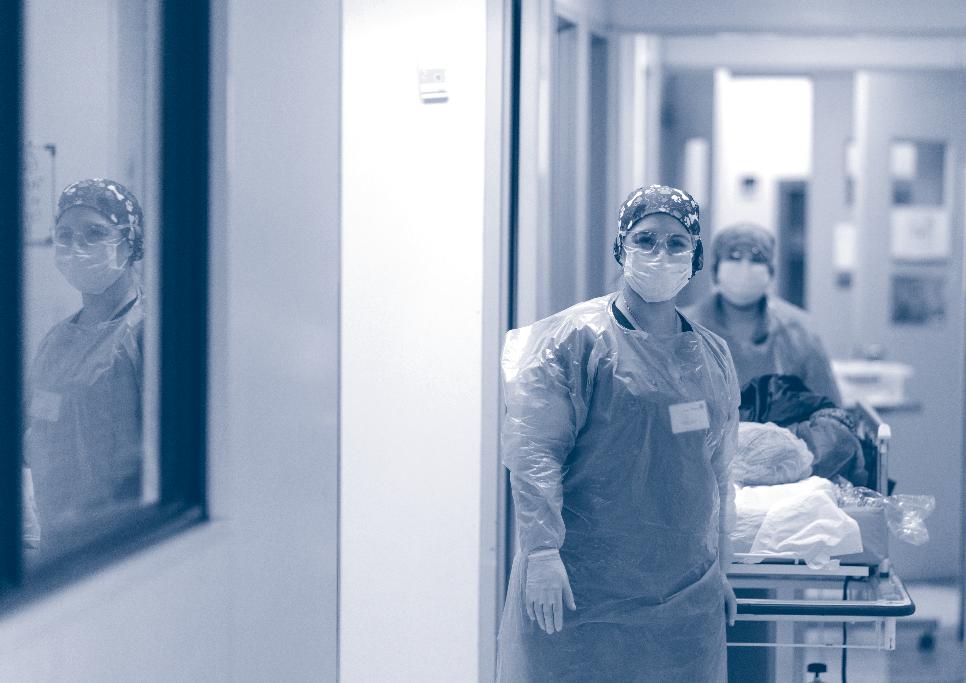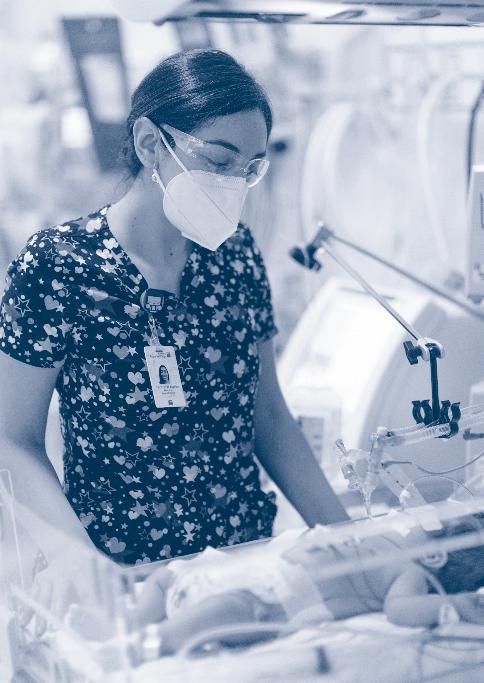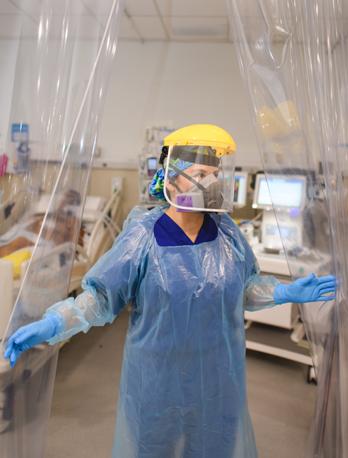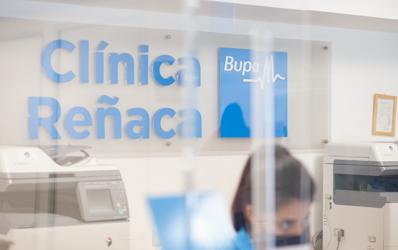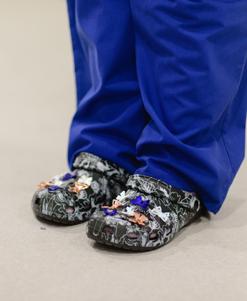
5 minute read
We care for each patient, as if they were the only one
A time of fast learning and great camaraderie
maría gonzález Nurse Hospital cima Sanitas
I am a theatre nurse and during the pandemic our hospital was a hospital of reference for covid. That meant we took patients from both the public and the private sector. Our hospital has six floors. It isn’t very big. But we do a lot of surgery. We have ten operating rooms and around 87 beds. We had to turn these operating rooms into intensive care units, especially the recuperation areas and another part that was more for patient induction. We put intubated patients there. We even had to turn anaesthetic machines into respirators. When I got ill at the end of January/ beginning of February I was very ill, but Covid was still quite uncommon. I personally had symptoms: I felt breathless, I was very tired and I had a temperature of 38.5 °C. I spent some days in bed. I hardly ever get that sick. I spent two days sweating, feeling awful and had a dry cough.
I started to take a load of things, including natural plant medicines and my usual medication. When I recovered, I had no sense of smell or taste, at a time when we didn’t know about Covid yet. When the state of emergency was declared, we were tested and I had antibodies. We were very scared at the beginning. You could see it on everyone’s faces. But we were all really supportive of each other and learnt from each other. What one didn’t know, the other taught them. You have to remember that at the beginning we were not intensive care unit or anaesthesia nurses, but we learnt really quickly and we had respirators and medical pumps. We would change them from their backs to their fronts and in that position, we provided all the care that a critical patient needs. We learnt all this from scratch basically. I remember once in the icu there was a young man we were giving a procedure to and a psychologist came in with a mobile phone. They would record the families and let the patients hear their voices. They used an iPad so they could see the families and it helped them recover more quickly. This was done whether the patients were awake or asleep, but usually they were all asleep. We would put the phone next to them and their grandchildren, children, wives and other loved ones would talk to them. Once I had to leave a patient’s room and go to the bathroom for a really good cry after hearing a four year old girl saying to her father: Papa, please get better, we want you home. Patients have recovered and walked out of here without any obvious after effects, though they are obviously quite weak. Some of them come back to see us and bring us sweets and thank you cards to cheer us up. Thank God, I have a very strong partner at home who has supported me a lot. He also works in healthcare and has good mental health. We would talk about it every day at home. I did a lot of sport and meditated a bit. A while ago I tried to do a very hard climb, almost a 7.5, which was a tough one for me. I fell off the rope but I am fine. I have pictures from the lockdown in Barcelona at the start of the pandemic, and the

BARCELONA — SPAIN
streets are deserted. I would drive to work and the police would stop me and ask for my travel documents. At the supermarket you had to queue. Once the state of emergency was lifted, we could go back to a bit more normality. I am Spanish, from the Canary Islands, now I am in El Hierro on holiday, which was originally declared to be Covid free. My family live here and it’s very different from the life we live in Barcelona. We even go to the beach. We wear masks now, but for the first twenty days of August we lived an almost normal life. It’s almost the end of August now and I think there’s going to be another surge, but not as bad as the last one. Finally, I would like to say that we have a team of colleagues up there who are great. Without the team we wouldn’t have made it. They are all great. They give their all every day! And there is a great team atmosphere. I never worked anywhere as good as this and I have worked in Holland, Belgium, Spain, in Madrid, and the Canary Islands. �

Closer to our patients with cancer
sonia guerrero Nurse Bupa Santiago Hospital
Some cancer patients are with us for one or two years. There are all ages, from a young person of 17 years old to more elderly people. Other people at risk that we treat are the immunosuppressed with HIV who also have cancer. All of them need special care because of the risk of Covid. Our patients have had to quarantine since the start of their illness and they know about not getting visitors. In some cases, one family member has been allowed to visit, with a lot of restrictions (masks, robes, distancing) but in other cases that hasn’t been possible because of the high risk, due to their low levels of immunity. They are very responsible people who take great care with all the safety measures and look after themselves and their families.
SANTIAGO — CHILE
The people we look after have highs and lows and can deteriorate very quickly. Cancer patients often get a fever and have to be treated with antibiotics. On the other hand, the patients are constantly hearing messages on the TV, in the media and elsewhere that remind them how vulnerable they are. To support them in this, we have worked together with psycho-oncology and psychiatry.
In our department, the nurses get very close to the patients because we don’t have lots of patients and they tend to stay a long time. This means we can work well with them and give them really comprehensive care.
Thankfully, none of our patients have been infected and I think that is because we have been careful and have worked together as an oncology team and with patients and families. �


